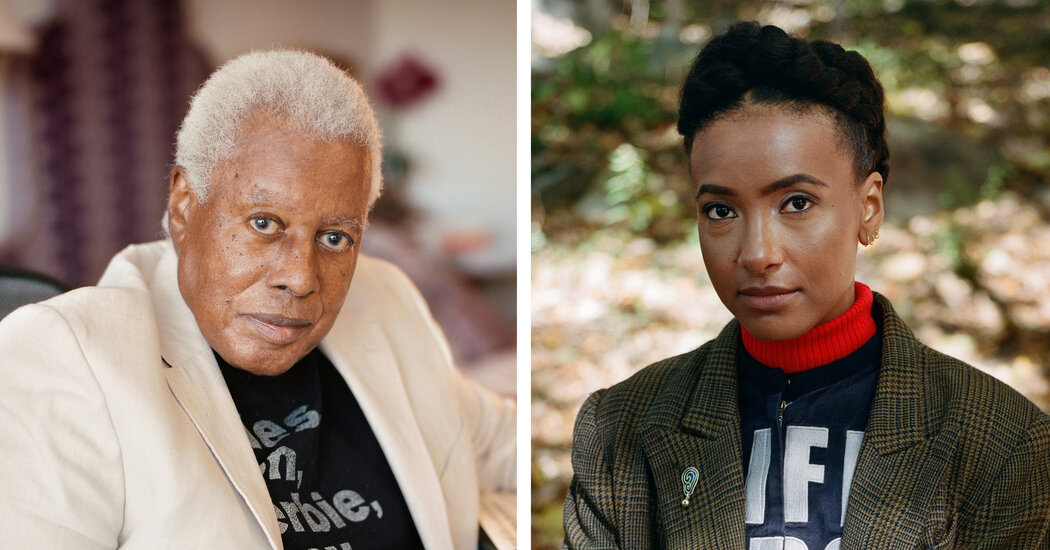
“Uncomfortable is a given, but if it gets too uncomfortable let me know,” Rundell said jokingly, making it clear he was willing to bargain with the vocalists on questions of tempo and dynamics. Shorter’s handwritten scores are done in painstaking detail, but they generally don’t prescribe the speed or volume at which the music is to be played. “It’s really much more like playing Handel and Purcell, music that was written with no dynamics, in which you need to use your own taste and judgment,” Rundell said in an interview.
Blain-Cruz, the director (who was awarded a Doris Duke Artist Award last month; Shorter received an award in the same batch), said that the score and libretto were filled with “Easter eggs.” Although the music is extremely difficult, she said, which can make blocking and flow a challenge, it “lends itself to an atmosphere of playfulness: ‘Cool, we’re going to try this, and why don’t you pick your notes?’ That freedom is invigorating to the process.”
Shorter has stayed home on the West Coast while the company rehearses, but he tunes into rehearsals via Zoom. And until a couple weeks ago, he was still feeding new sheet music to Spalding and Rundell, continuing what has been a collaborative, evolving process throughout, in which every new addition or change — be it from Shorter, Spalding, a cast member or someone else — is worth responding to.
Watching the rehearsals at the Armory on video, Shorter was having a full-circle moment. In the 1950s, when he was an undergrad at New York University, he went to weekly ROTC drills at the very same Park Avenue Armory, which was then still a military building. Around that time Shorter first hatched the idea to write an opera, titled “The Singing Lesson,” about a girl in New York City whose brother is in a motorcycle gang. When “West Side Story” came out, he ditched the idea.
Soon he became a known saxophonist around town, and a writer with a special voice. He became the main composer for whatever bands he joined, from Art Blakey’s Jazz Messengers to the Miles Davis Quintet. Boldly declarative but coolly farseeing, his compositions expanded the range of harmonic possibility in jazz. Then, in the 1970s and ’80s, he jumped outside of it, playing with the jazz-rock fusion band Weather Report and delving into Brazilian traditions and electronic-music frontiers.
Throughout the 21st century he has maintained a steady acoustic quartet (Danilo Perez on piano, John Patitucci on bass and Brian Blade on drums) for the first time in his career, and he has stepped more fully into orchestral writing. “Iphigenia” won’t be the first time he has paired the quartet with a Western orchestra.



